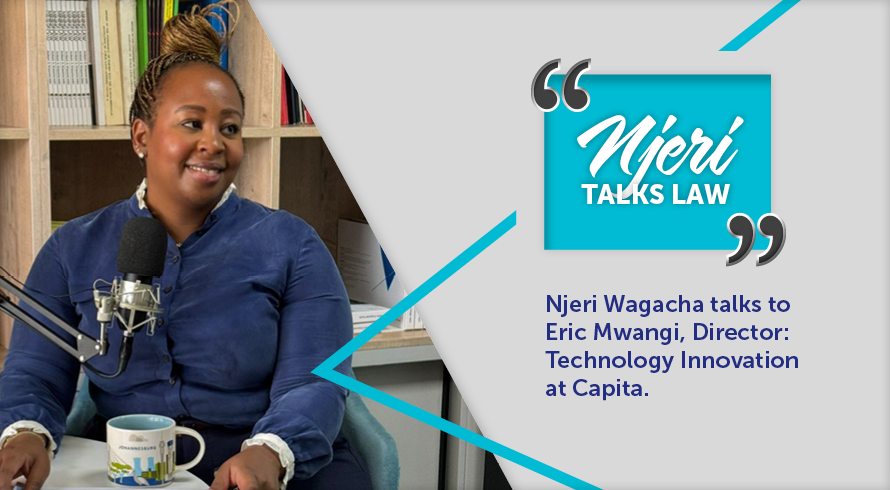Dedicated magistrates keep the wheels of justice turning
At a glance
- Magistrates' courts play a vital role in the judicial system, handling the majority of civil disputes and criminal prosecutions, and their efficient functioning is essential to the justice system.
- Navigating the Magistrate's Court as a candidate attorney can be an overwhelming experience, with the need to wear a black robe during appearances and following court procedures.
- Magistrates are diligent in managing a wide range of cases, often dealing with unopposed matters and making important judicial decisions, highlighting their dedication to upholding justice and keeping the legal system running smoothly.
It’s a sunny day in Johannesburg and the Magistrate’s Court is bustling. It’s your first week as a candidate attorney. Two things are crucial: your black robe and your script. You need to wear your robe while appearing before the magistrate. Your script is your lifeline. But you must remember not to wear your robe while walking to court – it is frowned upon for attorneys or advocates to walk the streets fully robed.
You are a candidate attorney navigating uncharted territory – your first appearance in the Magistrate’s Court. You step inside the building and struggle to find the courtroom but happen upon a friendly clerk who guides you up two flights of stairs. “You won’t miss it”, she says. You do miss it, but make it, at 08h55, which is just in time because Magistrate’s Court starts at 09h00 and not 10h00, like the High Court.
You check the court roll and your matter is there staring back at you. Number 16 on the unopposed motion court roll. Unopposed court means there’s a slim chance of a fiery opponent appearing and derailing the matter. You enter and take your place at the back of the room amongst the other robed candidate attorneys. Hierarchy, remember – advocates and senior attorneys appear first. The magistrate enters wearing a black robe. She is carrying her court rules and the Magistrate’s Court Act 32 of 1944 and puts them down with a thud. You remember what you learnt in law school – magistrates are creatures of statute which means that they can only hear applications catered for by the act. “Silence in court”, her clerk says.
Three hours later your matter is yet to be heard but you’ve sat through a multitude of unopposed matters from default judgment applications, to evictions, to debt collections. The magistrate is juggling them all. Opposed matters are being heard next door and the maintenance court is at the end of the corridor. Judicial decisions are being made throughout the building and you feel happy to be a small cog in the system.
This magistrate is clearly dedicated, prepared and eager to hear and determine as many matters as possible. You are impressed. Finally, matter number 16 is called up. You stand up, fix your robe, wipe your clammy hands and proceed to the front. You pass the candidate attorney whose matter has just been struck from the roll for failure to comply with the rules of court. You hope your application does not suffer the same fate. Clearing your throat, script in hand, you say, as confidently as possible, “Good morning Your Worship, I appear on behalf of the applicant in this matter”. You’re glad you remembered that magistrates are called “Your Worship”, not “My Lady” or “My Lord” like judges. Five minutes pass as you recite your script. The magistrate asks you some questions. There is a pause. You can hear your heart beating and the gentle whirr of the magistrate’s fan on her desk. Finally, she says, “Please hand up your draft order”. You’re grateful to your colleagues who reminded you to print two copies – one for the court and one for your file. “Order granted”, says the magistrate. You got your first order!
You walk back to the office, order in hand, remembering to take off your robe before stepping out onto the street. You suspect you will remember that magistrate who granted your first order, and the mass of matters she had before her, for many years to come. Walking back to the office, robe-less and anonymous, you marvel at her dedication to keeping the wheels of justice turning.
The information and material published on this website is provided for general purposes only and does not constitute legal advice. We make every effort to ensure that the content is updated regularly and to offer the most current and accurate information. Please consult one of our lawyers on any specific legal problem or matter. We accept no responsibility for any loss or damage, whether direct or consequential, which may arise from reliance on the information contained in these pages. Please refer to our full terms and conditions. Copyright © 2025 Cliffe Dekker Hofmeyr. All rights reserved. For permission to reproduce an article or publication, please contact us cliffedekkerhofmeyr@cdhlegal.com.
Subscribe
We support our clients’ strategic and operational needs by offering innovative, integrated and high quality thought leadership. To stay up to date on the latest legal developments that may potentially impact your business, subscribe to our alerts, seminar and webinar invitations.
Subscribe



